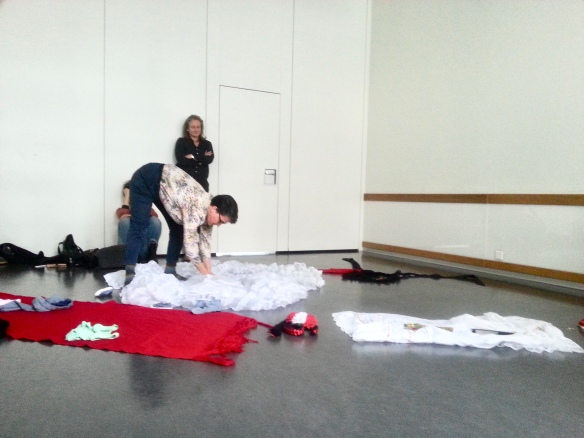Lecture-Performance by Dr. Gloria Godinez (Mexico/Gran Canaria) on 2 September at the 9th PERFORMANCE REIHE NEU-OERLIKON 2018:
Thoughts, emotions, and social moulds are expressed through dancing, precisely because dances contain stories and establish gestures which define what it is “to be a man” and “to be a woman”. After Mexican Revolution (1910-1920) begins that Néstor García Canclini names «the staging of the popular». Mexican nationalism has attempted to fix identities, firmly entrenched in music and popular dances, transforming them into folklore ballets based on heterosexual couples.
Frugal men with strong movements, along with beautiful, smiling women dressed up in colourful dresses as the image of the fatherland. Gender is not a natural thing, but rather that it is something constructed and verified based on signs that can be traced throughout the history of Mexican dance. Each time that we see the typical Mexican folk ballet postcard, we should remember that, behind those dances and those bodies, lay the country’s open wounds.
In order to question the staging of popular culture, we propose divergent images and folk cross-dressings, proving that gender is intentional and performative or, in Butler’s words, that every gender implies cross-dressing. These mixtures, combinations and hybridations have formed our Mexican identities. We must understand our own interstices, cavities and thresholds between different worlds, to translate us and pick up the fragments of ourselves, our multiple parts.
*This is an excerpt from the lecture-performance





Pictures: Va-Bene E.K. Fiatsi
_________________________________________________________________________________
©performance reihe neu-oerlikon 2023. All rights reserved. Total or partial reproduction of the texts or phots is expressly prohibited. contact: performancereihe@gmail.com.
